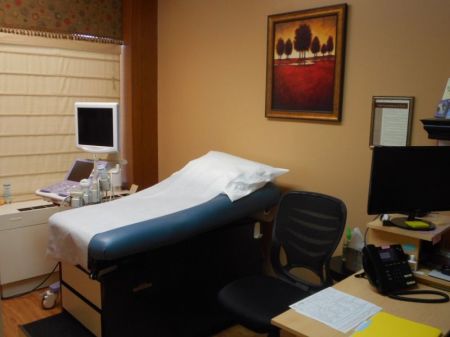Judge tosses Yelp's lawsuit against Texas over pro-life pregnancy center disclaimers

A federal judge has sided with the state of Texas as it seeks to take legal action against a website that sought to add disclaimers to information about pro-life pregnancy centers.
A Feb. 1 opinion filed by U.S. District Court for the Northern District of California Judge Trina Thompson rejects Yelp's request for a preliminary injunction preventing Texas' Republican Attorney General Ken Paxton from taking action against the customer review website for adding disclaimers declaring pro-life pregnancy centers "typically provide limited medical services and may not have licensed medical providers onsite."
The battle between Paxton and Yelp stems from the aftermath of the June 2022 U.S. Supreme Court decisionDobbs v. Jackson Women's Health Organization, which determined that the U.S. Constitution does not contain a right to abortion and led to several states enacting laws limiting or banning abortion.
In August 2022, Yelp published a notice to inform consumers that pro-life crisis pregnancy centers "typically provide limited medical services and may not have licensed medical professionals onsite."
After 24 state attorneys general sent Yelp a letter demanding that the company remove the first notice on Feb. 7, 2023, it responded by issuing a revised notice proclaiming that "crisis Pregnancy Centers do not offer abortions or referrals to abortion providers."
In September 2022, Paxton announced his intention to sue Yelp for violating the Texas Deceptive Trade Practices Act by adding disclaimers about pro-life pregnancy centers.
Shortly after that, Yelp filed a countersuit asking a court to prevent Paxton from taking any further action against the company. Thompson, appointed to the bench by President Joe Biden, maintained that current legal precedent required her to side with the state of Texas and dismiss Yelp's lawsuit.
Paxton released a statement reacting to the development Friday.
"Yelp cannot mislead and deceive the public simply because the company disagrees with our state's laws," he said. "I'm pleased that the court agreed with Texas that Yelp's federal lawsuit was a frivolous attempt to avoid enforcement for misleading consumers."
Paxton's lawsuit, filed in the District Court of Bastrop County, Texas, in September, elaborates on what he views as infractions committed by Yelp against the Texas Deceptive Trade Practices Act. The law prohibits "disparaging the goods, services, or business of another by providing a false or misleading representation of facts."
A section of the lawsuit outlining "Yelp's misleading and disparaging behavior" maintains that the company abided by a double standard when it came to labeling pregnancy centers.
While pro-life pregnancy centers were labeled with a disclaimer reading "This is a Crisis Pregnancy Center" and "Crisis Pregnancy Centers typically provide limited medical services and may not have licensed medical professionals onsite," Paxton expressed concern that the disclaimer was added to all pro-life pregnancy centers even if they did have medical professionals onsite.
"The Yelp disclaimer, however, was not added to other facilities that cater to pregnant women — specifically, facilities that provide abortion services, even if those facilities did not in fact have licensed medical professionals on site," the lawsuit stated.
The state rejects the argument that Yelp sought to "provid[e] consumers with reliable and useful information," suggesting that "Yelp's disclaimer provided users with misleading information."
"Yelp's disclaimer remarkably did not even provide the true information — as it was permitted to do — that pregnancy resource centers do not provide abortion services," the complaint reads. "Upon information and belief, Yelp's pregnancy resource center disclaimer caused many consumers to seek services from facilities that did not have the disclaimer instead of going to a pregnancy resource center."
Paxton said one pregnancy center documented the presence of medical professionals on staff in an effort to get Yelp to remove the disclaimer only for the company not to make the requested change for several months. His lawsuit remains ongoing and requests civil penalties against Yelp as well as attorney's fees.
The lawsuit also suggests that Yelp CEO Jeremy Stoppelman's support for the 1973 Roe v. Wade Supreme Court decision that legalized abortion, which Dobbs overturned, played a role in the company's decision to single out pro-life pregnancy centers. It includes quotes from Stoppelman documenting his "realiz[ation] [that] we need[] to take action" and asserting that Yelp provides special assistance to "select organizations that are fighting the legal battle against abortion bans."
Additional statements attributed to Stoppelman included in the complaint contend that "remaining silent on the issue of reproductive rights flies in the face of any public pledges professing a desire to create more diverse and inclusive companies" and "we need more business leaders to use their platform and influence to help ensure that reproductive rights are codified into law."
Ryan Foley is a reporter for The Christian Post. He can be reached at: ryan.foley@christianpost.com





















